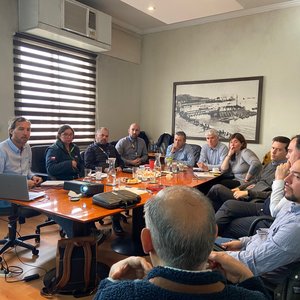ACC to transition to ISO-certified inspectors for Best Aquaculture Practices certification
The Aquaculture Certification Council, the non-profit organization that certifies hatcheries, farms and processing plants for compliance with Best Aquaculture Practices (BAP) standards, today announced a major change to the way it will conduct facility inspections.
ACC President Jim Heerin said ACC plans to transition from using individual evaluators to inspect facilities to coordinating with ISO-certified inspectorates in engaging evaluators. The transition, which is already underway, will be completed during 2010. The initial certification bodies are Global Trust (formerly IFQC) and Michigan-based NSF. More groups will be enlisted over time, Heerin said.
As part of this transition, ACC will identify itself as “BAP Certification Management” to reflect its new focus on managing the certification of BAP standards, as well as on educating and training producers in developing countries, “to encourage development of responsible, sustainable aquaculture,” Heerin said.
Heerin described the transition as a “key milestone for the BAP program as it evolves to meet marketplace requirements.” The use of ISO-certified inspectorates allows BAP certification to comply with the most discriminating international criteria, particularly benchmarking with the Global Food Safety Initiative—now underway—as well as the Food and Agriculture Organization’s Technical Guidelines on Aquaculture Certification, which are currently being developed. Heerin emphasized that the BAP program continues to require all evaluators to meet basic education and experience requirements and to be trained by ACC.
BAP-certified processing facilities now produce in excess of 400,000 MT of shrimp and 100,000 MT of tilapia—“vastly more than any other certification program or standards,” said ACC Vice President, Bill More. More added that ACC looks forward to soon-to-be-completed BAP feed, salmon, and Pangasius standards.
Heerin said BAP evaluators will continue to conduct inspections during the transition, in conjunction with ISO-certified inspection bodies, and ACC staff will continue to play a vital role in managing the certification process: “ACC has established a global reputation for the qualifications and expertise of its staff” he said. “For this reason, the ACC staff is uniquely qualified to manage the certification process and play a role in the development of responsible, sustainable aquaculture.”
Facilities interested in certification should continue to contact ACC at Aquacert@tampabay.rr.com. For more information, contact Jim Heerin at 404-377-2233.










